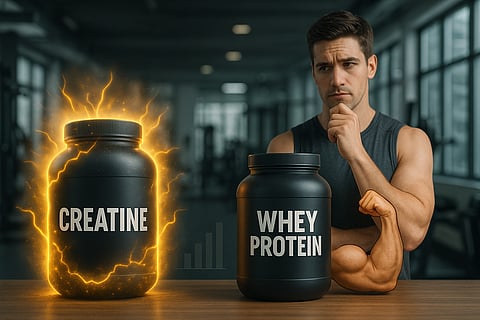Creatine: More Than Just a Gym Supplement
Let’s begin with creatine, often whispered about in gym corners, occasionally misunderstood, and even unfairly feared. What most don’t realise is that creatine isn’t some synthetic lab-made booster. It’s already inside you. The human body naturally produces it, primarily in the liver, pancreas, and kidneys, using amino acids like arginine and glycine. Once it’s made, it travels into muscle tissue, where it’s stored in the form of phosphocreatine. This reserve helps the body rapidly regenerate energy during short, intense activities—think sprinting for a train or lifting heavy weights.
When taken as a supplement, creatine essentially tops up this energy reserve. Scientific backing for it is far from flimsy. According to a 2021 consensus paper from the International Society of Sports Nutrition, creatine monohydrate, when consumed in doses of 3–5 grams daily, is both safe and effective for boosting muscle performance, power output, and recovery. Some athletes follow a "loading phase" (taking 20 grams daily for a week to saturate muscle stores faster), but it's by no means essential.
More intriguingly, creatine isn’t just a gym rat’s best mate. Recent studies are exploring its potential benefits for brain health. Research published in Psychopharmacology found measurable improvements in cognitive tasks and memory function in people supplemented with creatine, particularly under stress or sleep deprivation. There's growing chatter around its role in supporting individuals with neurodegenerative disorders, too, though more evidence is needed before it can be prescribed clinically.


